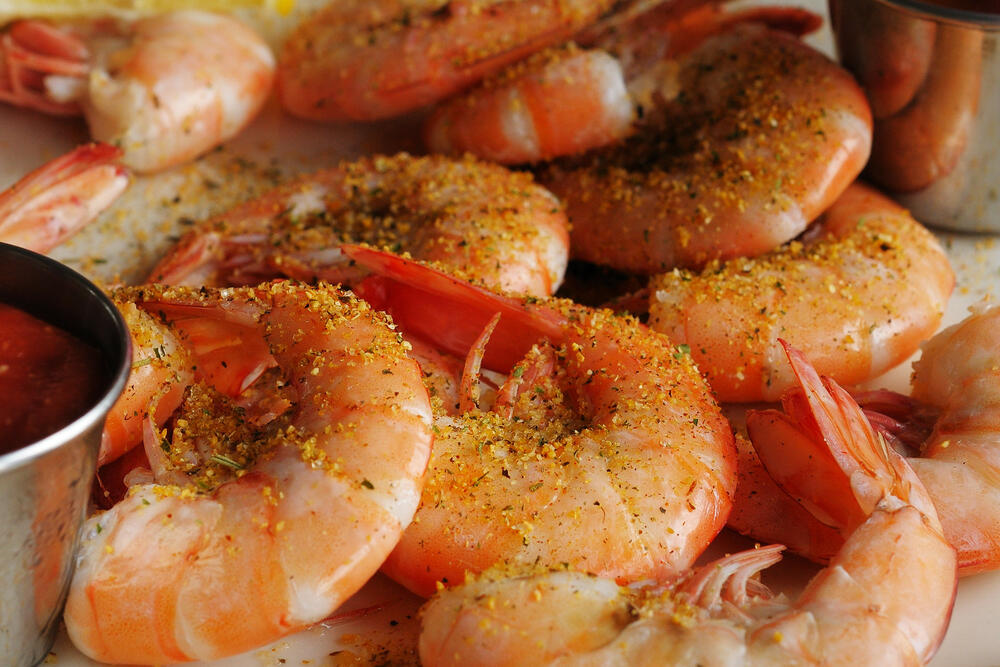
Section Branding
Header Content
Georgia shrimpers applaud new Trump tariffs on imported shrimp as way to 'level the playing field'
Primary Content
LISTEN: The tariffs aim to buoy the U.S. shrimp industry, but also raise concerns of future shortages and price hikes. GPB's Benjamin Payne reports.

Shrimp farmers in Coastal Georgia are welcoming new tariffs announced last week by the Trump administration on imported shrimp, seeing them as a lifeline for an industry struggling to compete with foreign producers.
Imported shrimp, which account for roughly 95% of all shrimp eaten in the U.S., will be subject to tariffs ranging from 10% on imports from Ecuador and Argentina to as high as 46% on shrimp from Vietnam.
John Wallace, a third-generation fisherman in McIntosh County and owner of the Brunswick-based harvester and supplier Anchored Shrimp Co., views the tariffs as a chance to restore competitive balance.
"We would just like to see a level playing field to where we can feel we can compete, make a living, do the things that we've always done for the last 100 years, and be a small family-owned business," Wallace said. "That's what most of the shrimp industry is — is just family-owned businesses that are just trying to survive."
The Southern Shrimp Alliance, a trade group representing the U.S. shrimp industry across eight states including Georgia, praised the administration's decision as a necessary protection for American jobs.
"We've watched as multigenerational family businesses tie up their boats, unable to compete with foreign producers who play by a completely different set of rules," Southern Shrimp Alliance executive director John Williams said in a statement.
According to the group, the U.S. shrimp industry has lost nearly 50% of its market value — exceeding $1.5 billion — since 2021, when prices of imported shrimp began to drop significantly.
Wallace, who sits on the Southern Shrimp Alliance's volunteer board of directors, acknowledged that consumer prices for shrimp may rise as a result of the tariffs, as approximately 95% of shrimp eaten in the U.S. is imported.
However, he argued that foreign competitors have long benefited from artificially low prices driven by the exploitation of workers and the use of banned antibiotics.
"If we can get a level playing field, we can compete on the market, but you can't compete against forced labor and extremely cheap labor," Wallace said.
The alliance claims that international financial institutions have invested billions of dollars into foreign shrimp aquaculture development, particularly in India and Ecuador, which together supply nearly 70% of all U.S. shrimp imports.
Ecuador alone has received over $550 million in development funding for shrimp farming since 2000, according to the group, helping to fuel a 150% increase in their shrimp exports to the U.S. in just four years.
While the tariffs may help domestic producers, Wallace voiced worries about the economic challenges still facing the industry.
"It's a concern for us because inflation has hit the shrimp industry just as hard as it has anyone else," he said. "Whereas inflation has worked on other products, the price of our shrimp has gone down in the last two years by almost 50%. So we're working on less money, [but] everything else is costing us more."

